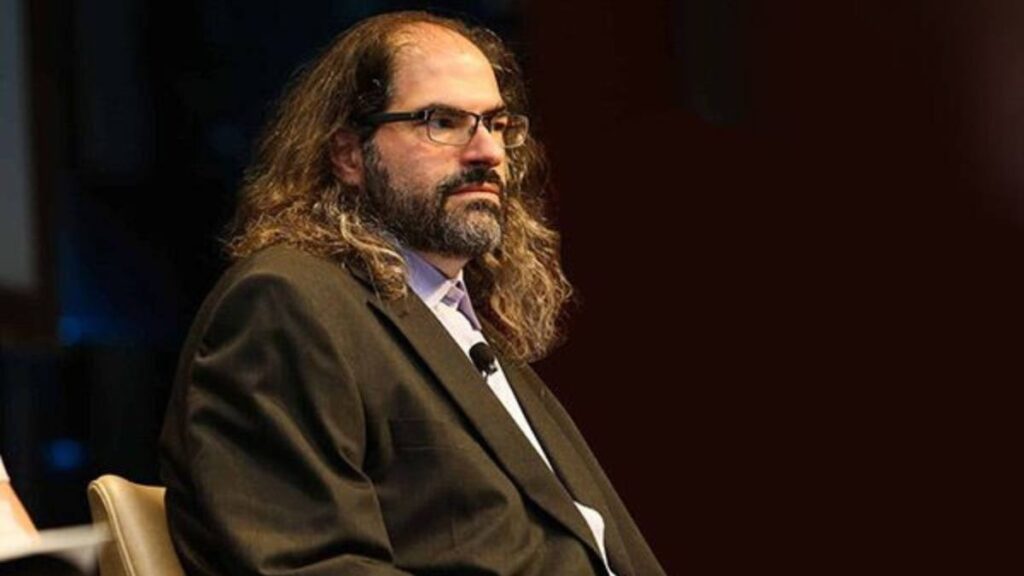Ripple CTO David Schwartz unexpectedly defends Craig Wright’s legal team in Satoshi Nakamoto trial despite previous criticisms.

In an unexpected development amid the ongoing legal disputes concerning Craig Steven Wright, Ripple’s Chief Technology Officer, David Schwartz, has defended the arguments of his legal team.
Schwartz recently provided a surprising perspective on Wright’s controversial assertions that he is the pseudonymous creator of Bitcoin, Satoshi Nakamoto. The most recent statement is in stark contrast to the Ripple CTO’s previous statements, in which he vehemently criticized Wright.
Hodlonaut, a prominent figure in the crypto community, initiated the conversation by bringing to the attention of X a peculiar argument from Wright’s legal team.
He stated, “Craig Wright’s attorneys advocate for his “human right” to continue “identifying” as Satoshi and asserting that he is.” Additionally, this assertion elicited a variety of responses, including a noteworthy response from Schwartz.
Schwartz recognized the legal intricacy of Wright’s claims. According to the Ripple CTO, “I regret to inform you that I believe they are correct.” Craig’s assertions that he is Satoshi during conversations do not constitute any form of expression that the government has the authority to restrict or penalize. They are not fraudulent. They are not defamatory.
This viewpoint underscores the legal distinction between fraudulent actions and casual claims. Also, it implies that informal assertions of identity may not necessarily constitute unlawful conduct. Nevertheless, Schwartz’s defense was not entirely reckless.
A user inquired as to whether Wright’s assertions were fraudulent in light of his intention to obtain financial gain by impersonating Satoshi. Consequently, Schwartz clarified his position by asserting, “That is fraud.” Nevertheless, the Ripple CTO persisted in defending the arguments presented by Wright’s defense.
Schwartz continued, “However, his assertion that he is Satoshi in casual conversations, with no explicit intention of obtaining something of monetary value, is not fraudulent.” An injunction that would prevent him from utilizing any claim to be Satoshi to obtain something of value would be acceptable.
Furthermore, the Ripple CTO provided additional insight into the constraints of judicial intervention in these types of situations. He underscored that courts are not the arbiters of historical truth. Schwartz declared, “Courts are not authorized to resolve historical inquiries and then forbid individuals from questioning the court’s findings.”
The Ripple CTO further stated, “However, they have the authority to issue injunctions that prohibit defamation, fraud, jury tampering, and other similar activities.” Conversational assertions do not correspond to any of those categories.
Wright “shall not pursue proceedings,” according to COPA’s draft order. The order is intended to prevent him from professing to be Satoshi Nakamoto in any global legal context. Nevertheless, Wright’s legal team, which was managed by Craig Orr KC, endeavored to modify the term “pursue” to “commence” in order to enable Wright to defend himself.
However, Hough KC of COPA contended that this amendment could provide a loophole that would enable favorable parties to sue Wright and revisit the matter.
Wright’s free speech rights were invoked by Orr KC under Article 10 of the Human Rights Act, asserting that Wright should be permitted to assert his identity as Satoshi. Subsequently, Hough KC argued that the court had determined that Wright had fabricated his identity as Satoshi.
The draft order would not impede Wright from making such claims in private, but it would limit his public statements. COPA also intends to compel Wright to publish the court’s findings on a variety of platforms (e.g., Twitter, Slack) for six months.
Additionally, they recommended that Wright and others be referred for potential criminal proceedings as a result of alleged document forgery and perjury.
Orr KC contended that the court’s findings had already been widely disseminated and accused COPA of seeking revenge and humiliation, asserting that COPA had not experienced any direct damage. He characterized COPA’s relief requests as “unprecedented, novel, and extremely extensive.”
